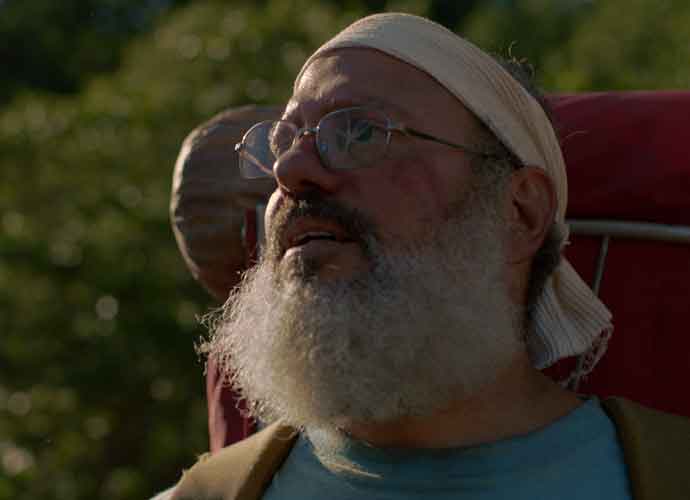VIDEO EXCLUSIVE: David Cross Praises Debra Messing For Going Deep On ‘The Dark Divide’
David Cross discussed the real life people behind the characters in his new film The Dark Divide, in his new uInterview.
The story follows the real-life story of nature writer and lepidopterist (aka someone who studies butterflies and moths) Robert Pyle who treks through the dangerous unexplored areas of Gifford Pinchot National Forest in Washington state.
“He’s in over his head, he’s quite naïve about what it would entail, but also has some hubris to him,” Cross told uInterview Founder Erik Meers.
“In a nutshell, he is in the beginning process of grieving for his wife who just died of cancer,” Cross described, “but she kind of you know, plays this little, I don’t want to say tricks him, but her final parting gift to him is making him go on this 124-mile hike through this very dangerous part of Gifford Pinchot National Forest, which he’s been threatening to do forever and he always finds an excuse not to do it. And then she signs him up for a Guggenheim fellowship which he ends up winning and so he has to do it.”
The movie features flashbacks of Pyle’s wife Thea, played by Debra Messing, who had a “really intense process” for the movie, according to Cross.
“She did a lot of studying for it,” he said. “She talked to Robert, she talked to relatives of Thea’s, she’s wearing Thea’s clothing and jewelry, her real clothing that she had, the art on the walls in the bedroom, those are all the real Thea’s artwork. I don’t think I could’ve gotten to where I needed to get to without her doing really the heavy lifting as the person who’s dying and I’m just reacting to the person dying.”
Cross also spent time with Pyle, who he said treated him like his grandkid while he learned how to catch butterflies. Cross also revealed that Pyle came to set several times, and acted as “the biggest cheerleader.”
“He’s a really remarkable, good, decent person,” Cross said. “He reminds you the world would be a better place if people, and I’m including myself in this, were just better and nicer and decent and approached things from a, you know, perspective of love and appreciation of nature and eyes open and a kind of more open consciousness.”
RELATED ARTICLES
Get the most-revealing celebrity conversations with the uInterview podcast!









Leave a comment